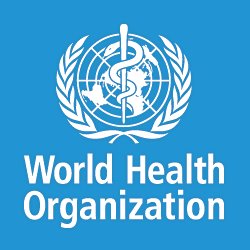
1 in 10 medical products in developing countries substandard or falsified: WHO
Geneva, Dec 11 (IBNS): A new research from World Health Organization (WHO), a specialized agency of the United Nations that is concerned with international public health, stated 1 in 10 medical products in developing countries was reported to be substandard or falsified, media reports said.
These substandard or falsified medical products not only failed to treat or prevent disease but is a financial burden on health systems and can cause serious illness or even death.
WHO Director-General, Dr. Tedros Adhanom Ghebreyesus told media: “Substandard and falsified medicines particularly affect the most vulnerable communities. Imagine a mother who gives up food or other basic needs to pay for her child’s treatment, unaware that the medicines are substandard or falsified, and then that treatment causes her child to die."
"This is unacceptable. Countries have agreed on measures at the global level – it is time to translate them into tangible action," he added.
Out of the total of approximately 1500 substandard or falsified products received by WHO since 2013, antimalarials and antibiotics were most commonly reported.
Most of the reports (42%) come from the WHO African Region, 21% from the WHO Region of the Americas and 21% from the WHO European Region.
Only 8% of reports of substandard or falsified products came to WHO from the Western Pacific Region, 6% from the Eastern Mediterranean Region and just 2% from the South-East Asia Region.
“Many of these products, like antibiotics, are vital for people’s survival and wellbeing,” Dr Mariângela Simão, Assistant Director-General for Access to Medicines, Vaccines and Pharmaceuticals at WHO said.
“Substandard or falsified medicines not only have a tragic impact on individual patients and their families, but also are a threat to antimicrobial resistance, adding to the worrying trend of medicines losing their power to treat”.
Global reporting of this information prior to 2013 was absent. It was only after after the establishment of Global Surveillance and Monitoring System (GSMS) for substandard and falsified medical products (SFMP) by WHO that many countries actively started to report suspicious medicines, vaccines and medical devices.
WHO had imparted training to about 550 regulators from 141 countries to detect and respond to this issue and with more people being trained, more cases are consequently being reported to WHO.
Reports of substandard or falsified medical products ranging from cancer treatment to contraception not confined to high-value medicines or well-known brand names and are split almost evenly between generic and patented products have been received by WHO.
According to a medicine quality surveys done in 88 low- and middle-income countries involving 48 000 samples of medicines based on a study on more than 100 published research papers it was estimated that of 10.5 percent failure rate in all medical products used in low- and middle-income countries is being In published in conjunction with the first report from the GSMS published on Nov 28.
Two reports have been published by WHO earlier this week. WHO launched its GSMS for SFMP, vaccines and in-vitro diagnostic tests in July 2013.
This first report is based on data collected during the first 4 years of operation up to 30 June 2017.
WHO and the Member State Mechanism had conducted a study on the public health and socioeconomic impact of SFMP based on 100 literature reviews provide data for more than 48 000 samples of medicines from 88 countries.
(Reporting by Asha Bajaj)
Support Our Journalism
We cannot do without you.. your contribution supports unbiased journalism
IBNS is not driven by any ism- not wokeism, not racism, not skewed secularism, not hyper right-wing or left liberal ideals, nor by any hardline religious beliefs or hyper nationalism. We want to serve you good old objective news, as they are. We do not judge or preach. We let people decide for themselves. We only try to present factual and well-sourced news.







